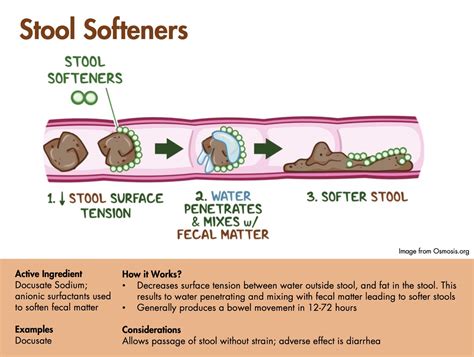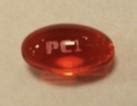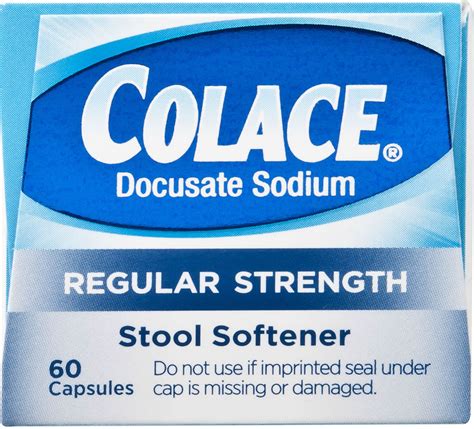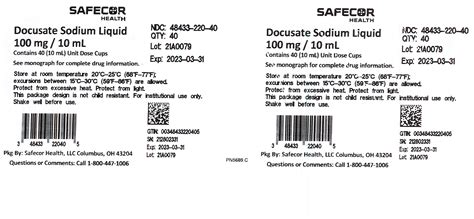Intro
Discover the 5 uses of Docusate Sodium, a stool softener, for constipation relief, bowel movement regulation, and prevention of straining during defecation, promoting digestive health and comfort with its emollient properties.
The importance of maintaining a healthy digestive system cannot be overstated. One crucial aspect of this is ensuring regular bowel movements, which can sometimes be hindered by constipation. Constipation is a common condition characterized by infrequent bowel movements, hard or lumpy stools, and difficulty passing stools. It can be caused by a variety of factors, including a low-fiber diet, inadequate hydration, physical inactivity, and certain medications. Managing constipation often involves lifestyle changes, but in some cases, medication may be necessary. Docusate sodium is one such medication that is widely used to treat constipation.
Docusate sodium works by increasing the amount of water the stool absorbs in the gut, making the stool softer and easier to pass. It is a stool softener that belongs to a class of medications known as surfactants. Unlike laxatives, which stimulate bowel movements, docusate sodium does not force the bowels to move but rather makes it easier for the body to pass stools naturally. This makes it a preferred choice for individuals who experience occasional constipation or for those who need a gentle and non-invasive treatment option.
The use of docusate sodium has been well-documented, and its benefits extend beyond just treating constipation. For individuals with certain medical conditions, such as hemorrhoids or anal fissures, passing hard stools can exacerbate their condition, leading to increased pain and discomfort. By softening the stool, docusate sodium can help alleviate some of this discomfort, making it an important tool in the management of these conditions. Furthermore, docusate sodium is often recommended for post-operative patients, especially those who have undergone surgery in the abdominal or pelvic area, as it can help prevent constipation caused by pain medications and reduced mobility.
How Docusate Sodium Works

Docusate sodium's mechanism of action is rooted in its ability to lower the surface tension of the stool, allowing it to absorb more water from the intestinal tract. This increase in water content softens the stool, making it easier to pass. Unlike stimulant laxatives, which can cause the muscles in the intestines to contract and move the stool along, docusate sodium does not stimulate the bowel muscles. Instead, it works gently to facilitate a more natural bowel movement. This gentle action reduces the risk of dependency and makes docusate sodium a safer option for long-term use compared to stimulant laxatives.
Benefits of Using Docusate Sodium
The benefits of using docusate sodium are multifaceted. For one, it provides a gentle and non-invasive way to manage constipation, reducing the strain on the anal sphincter and the risk of complications such as hemorrhoids or anal fissures. Additionally, because it does not stimulate the bowel, it is less likely to cause cramping, gas, or diarrhea, which are common side effects of other laxatives. This makes docusate sodium an attractive option for individuals who are looking for a comfortable and convenient way to manage their constipation.Common Uses of Docusate Sodium

Docusate sodium has several common uses that highlight its versatility and effectiveness in managing constipation and related conditions. These include:
- Treatment of Constipation: Docusate sodium is primarily used to treat constipation by softening the stool and making it easier to pass.
- Prevention of Constipation: In situations where constipation is likely, such as post-operative care or during prolonged bed rest, docusate sodium can be used preventively.
- Management of Hemorrhoids: By reducing the strain on the anal sphincter during bowel movements, docusate sodium can help manage the discomfort associated with hemorrhoids.
- Relief from Anal Fissures: Similar to its use in managing hemorrhoids, docusate sodium can help alleviate the pain and discomfort of anal fissures by ensuring softer stools.
- Preparation for Medical Procedures: In some cases, docusate sodium may be prescribed to cleanse the bowel before certain medical procedures, such as colonoscopy, to ensure the intestines are clear of stool.
Side Effects and Precautions
While docusate sodium is generally considered safe and well-tolerated, there are potential side effects and precautions to be aware of. Common side effects may include stomach pain, diarrhea, and rectal irritation. In rare cases, more serious side effects can occur, such as allergic reactions. It is essential to follow the recommended dosage and consult with a healthcare provider if any side effects are experienced. Additionally, individuals with certain medical conditions, such as intestinal blockage, or those taking certain medications, should use docusate sodium under medical supervision.Interaction with Other Medications

Docusate sodium can interact with other medications, either by enhancing their effects or by reducing their absorption. For instance, mineral oil should not be taken within one hour of docusate sodium, as it can interfere with the action of docusate sodium. Moreover, the concurrent use of docusate sodium with other laxatives should be approached with caution, as it may increase the risk of gastrointestinal side effects. It is crucial for patients to inform their healthcare provider about all the medications they are taking to avoid potential drug interactions.
Dosage and Administration
The dosage of docusate sodium varies depending on the form of the medication and the individual's response to treatment. It is typically taken orally, with or without food, once or twice daily. The capsules or tablets should be swallowed whole, not chewed or crushed, to ensure the medication works properly. For liquid forms, the dose should be measured carefully using a special measuring device to avoid overdosing. It is essential to follow the recommended dosage and not to exceed it without consulting a healthcare provider, as this can lead to adverse effects.Long-Term Use and Dependency

One of the concerns with the long-term use of any laxative, including docusate sodium, is the potential for dependency. However, docusate sodium is less likely to cause dependency compared to stimulant laxatives. This is because it works by softening the stool rather than stimulating the bowel muscles. Nonetheless, prolonged use can lead to a decrease in the body's natural ability to pass stools, a condition known as laxative dependency. To avoid this, it is recommended to use docusate sodium for the shortest duration necessary and to combine its use with lifestyle changes that promote regular bowel movements, such as a high-fiber diet, adequate hydration, and regular physical activity.
Lifestyle Changes to Enhance Effectiveness
To maximize the effectiveness of docusate sodium and to manage constipation in the long term, several lifestyle changes are recommended. These include: - Increasing dietary fiber intake through fruits, vegetables, whole grains, and legumes. - Drinking plenty of water and other fluids to help soften and move food through the intestines. - Engaging in regular physical activity to stimulate bowel function. - Establishing a regular bowel routine, such as attempting to have a bowel movement at the same time each day. - Managing stress through relaxation techniques, as stress can exacerbate constipation.Conclusion and Future Directions

In conclusion, docusate sodium is a valuable medication for the management of constipation and related conditions. Its gentle and non-invasive action makes it an attractive option for individuals looking for a comfortable and effective way to manage their bowel movements. As research continues to uncover the complexities of bowel function and the factors that influence it, the role of docusate sodium in gastrointestinal health is likely to evolve. Future directions may include the development of new formulations or combinations of docusate sodium with other agents to enhance its efficacy and safety profile. Additionally, there may be a greater emphasis on preventive strategies, including dietary and lifestyle interventions, to reduce the incidence of constipation and the need for medication.
Final Thoughts
The management of constipation is a multifaceted issue that requires a comprehensive approach. While docusate sodium is a useful tool in this endeavor, it should be used as part of a broader strategy that includes dietary changes, increased physical activity, and stress management. By adopting a holistic approach to gastrointestinal health, individuals can reduce their reliance on medication and promote regular, comfortable bowel movements. As always, consultation with a healthcare provider is essential to determine the best course of treatment for constipation and to ensure that any underlying conditions are properly addressed.What is docusate sodium used for?
+Docusate sodium is used to treat constipation by softening the stool and making it easier to pass.
How does docusate sodium work?
+Docusate sodium works by lowering the surface tension of the stool, allowing it to absorb more water and become softer.
Can docusate sodium be used long-term?
+While docusate sodium is generally considered safe for long-term use, it is recommended to use it for the shortest duration necessary and to combine its use with lifestyle changes that promote regular bowel movements.
We hope this information has been helpful in understanding the role of docusate sodium in managing constipation and promoting gastrointestinal health. If you have any further questions or would like to share your experiences with docusate sodium, please feel free to comment below. Additionally, if you found this article informative, consider sharing it with others who may benefit from this information.
